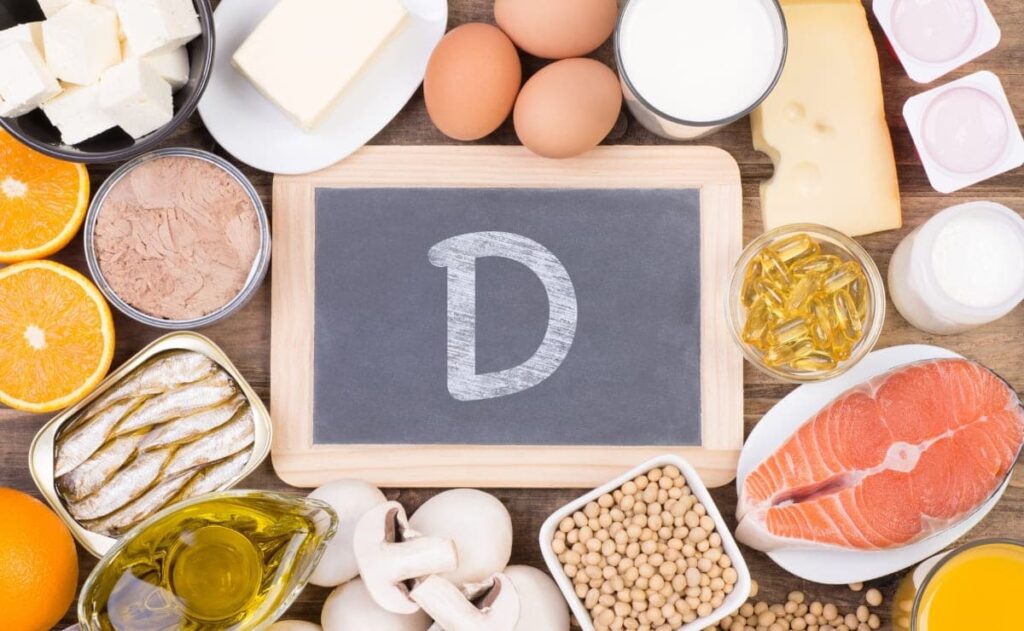As a person grows older, the body also gradually deteriorates, so we must work to take care of the body and provide it with all the supplements it needs for an old age and a healthy life as we age, especially in older people, who may suffer from vitamin D deficiency. This situation occurs when your body is not receiving enough vitamin D to keep you healthy.
Thus, among the many positive effects of vitamin D is that it helps the body absorb calcium, which is one of the main components of bones. Vitamin D also plays a role in your nervous, muscular and immune systems. Vitamin D can be obtained in three ways: through the skin, diet and supplements. The body produces vitamin D naturally after exposure to sunlight; however, too much sun exposure can lead to aging and skin cancer, so many people seek to get their vitamin D from other sources.
What causes vitamin D deficiency in retirees?
The amount of vitamin D a person needs on a daily basis is directly related to age. Therefore, the doses recommended by experts in this area, in international units (IU), are as follows:
- Birth to 12 months: 400 IU
- Children between one and 13 years of age: 600 IU
- Adolescents between 14 and 18 years of age: 600 IU
- Adults from 19 to 70 years old: 600 IU
- Adults over 71 years of age: 800 IU
- Pregnant and lactating women: 600 IU
In this line, it is also deduced that people at high risk of suffering from deficiency of this vitamin will need to ingest a higher amount than the rest. For this reason, it is important to seek professional advice and undergo analyses, which will reveal the state of the organism and the amount of vitamin D that each person needs, as well as the way to obtain it. However, among the possible reasons for the shortage or insufficiency of this vitamin supplement in the body, the following causes can be deduced:
- You do not get enough vitamin D in your diet.
- Not absorbing enough vitamin D from food
- You do not get enough exposure to sunlight
- Your liver or kidneys cannot convert vitamin D into its active form in the body.
- You take medications that interfere with your body’s ability to convert or absorb vitamin D.
People at risk for vitamin D deficiency
According to what has been shown by various studies on this subject, there are groups of people who are more vulnerable than others to suffer and be at risk of a shortage of this vitamin in their bodies. Therefore, some people at greater risk of vitamin D deficiency are:
- Breastfeeding babies, because human milk is not a good source of vitamin D. If you are breastfeeding, give your baby a 400 IU vitamin D supplement every day.
- Older adults, because their skin does not produce vitamin D when they sunbathe as efficiently as when they were young, and their kidneys are less able to convert vitamin D to its active form
- Dark-skinned people, because they are less able to produce vitamin D from the sun
- People with conditions that make it difficult to absorb nutrients from food, such as Crohn’s disease, ulcerative colitis and celiac disease
- People who have obesity because their body fat binds to some vitamin D and prevents it from entering the bloodstream
People who have had gastric bypass surgery, a type of weight-loss operation that creates a direct pathway to the small intestine.
Because vitamin D is absorbed there, the shunt makes it more difficult to absorb enough vitamin D
– People with chronic kidney or liver disease, which can affect their ability to convert vitamin D into a form the body can use
– People taking medications that affect vitamin D levels, including certain cholesterol medications, anticonvulsants, corticosteroids, and weight-loss drugs
Finally, there are some foods that naturally have some vitamin D, such as:
- Fatty fish such as salmon, tuna and mackerel.
- Beef liver
- Cheese
- Mushrooms
- Egg yolk
Vitamin D can also be obtained from fortified foods such as milk, orange juice, soy beverages and other dairy products such as yogurt. However, there are also vitamin complexes for all ages to compensate for the lack of vitamin D in the body, especially for the elderly and those over 70 years of age.
